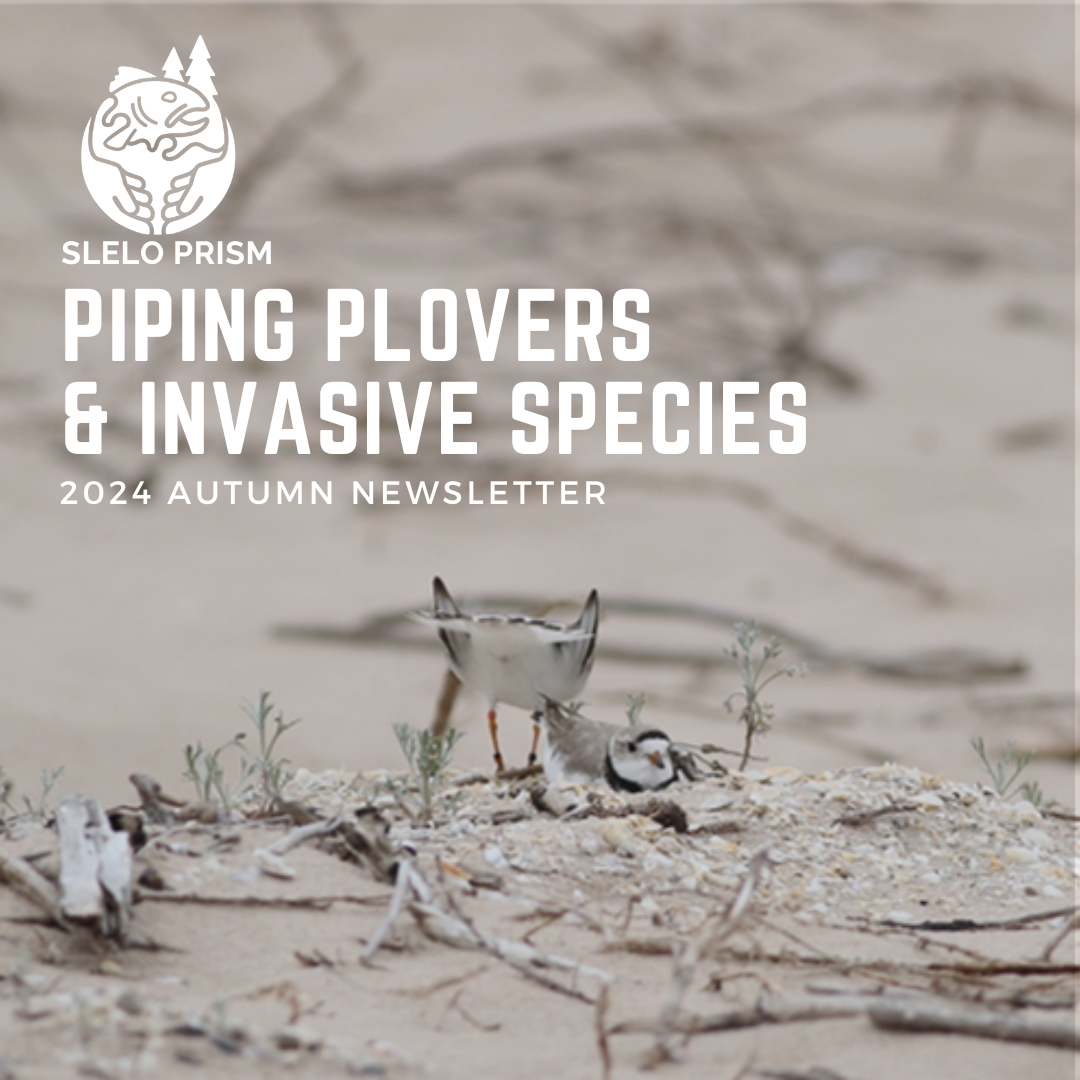This article was featured in the 2024 Autumn Newsletter by, Kennedy Sullivan, NYS Office Parks Recreation and Historic Preservation.
Piping plovers (Charadrius melodus) are tiny shorebirds that live and nest exclusively on the beach. They are found along oceans, lakes, and rivers looking for invertebrates to eat. The species is divided into three populations across the United States which include the Atlantic Coast, Great Lakes, and Great Plains. In New York State, we have both Atlantic Coast and Great Lakes plovers. The Great Lakes population is state and federally endangered, but the Atlantic Coast is state endangered and federally threatened. Our Great Lakes plovers are found on the shoreline of Lake Ontario and the Atlantic plovers are found along Long Island.
Piping plovers are important to our ecosystem for several reasons. As an indicator species, they tell biologists if the beach ecosystem is healthy. They are also a part of a broad food web, and without them, biodiversity will decrease on our shores. Piping plovers can tell us how invasive species impact our beaches because they are picky on placing a nest. For context, piping plovers make depressions (or scrapes) directly on the ground in the upper beach as their nest. They will then lay 4 eggs and both parents take turns incubating the clutch for about a month. Piping plovers do not like nesting in areas of dense vegetation, as they prefer wide, expansive stretches of beach to prevent predators from sneaking up on them and their chicks.
Invasive plant species , such as Phragmites, spotted knapweed, yellow iris, and purple loosestrife can quickly take over the dune ecosystem. They choke out state protected
plants like American beach grass and dune willow. Invasive species are hard to control if they get too large and it can take years to fully remove them. It is concerning if we have invasive plants within piping plover nesting habitat, as its detrimental to their ability to return each season.
It is important to volunteer with organizations to remove invasive plants, as you are not only protecting the native plants, but endangered species like the piping plover. If you’re interested in volunteering, please contact Kennedy Sullivan, the NYS Great Lakes Piping Plover Recovery Program Coordinator, at kennedy.sullivan@parks.ny.gov. Their field season begins annually on April first. Those interested in volunteering can help with beach clean-ups, education and outreach, monitoring, installation of fencing, habitat restoration, and removing invasive plants.
Please fill out the form below to be added to our listserv and receive our seasonal newsletter, event invitations and other announcements.


